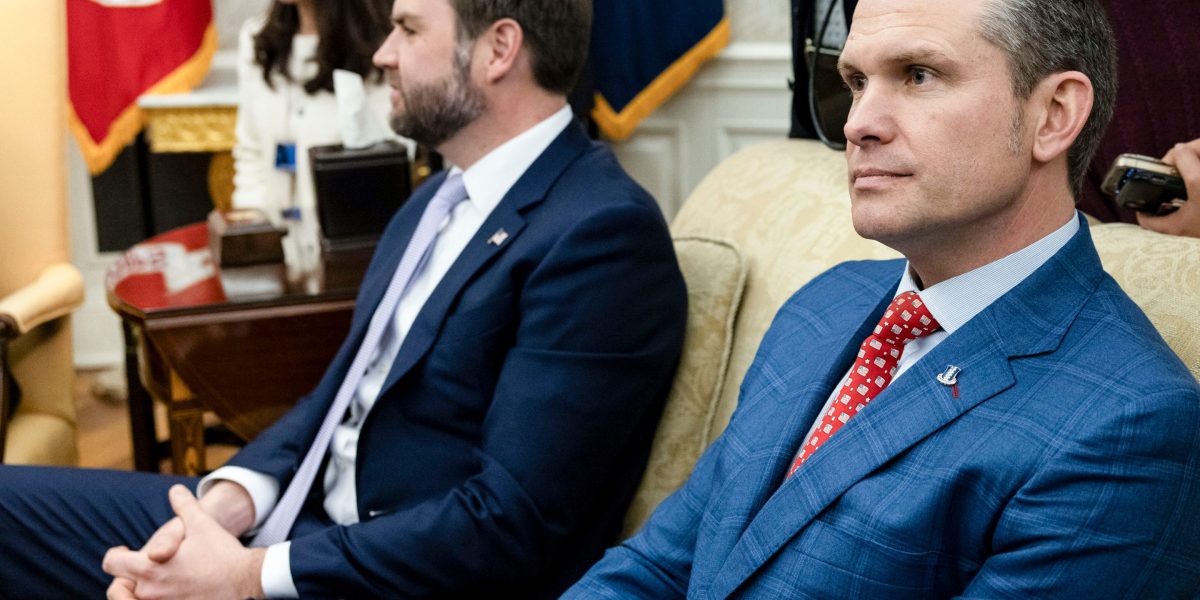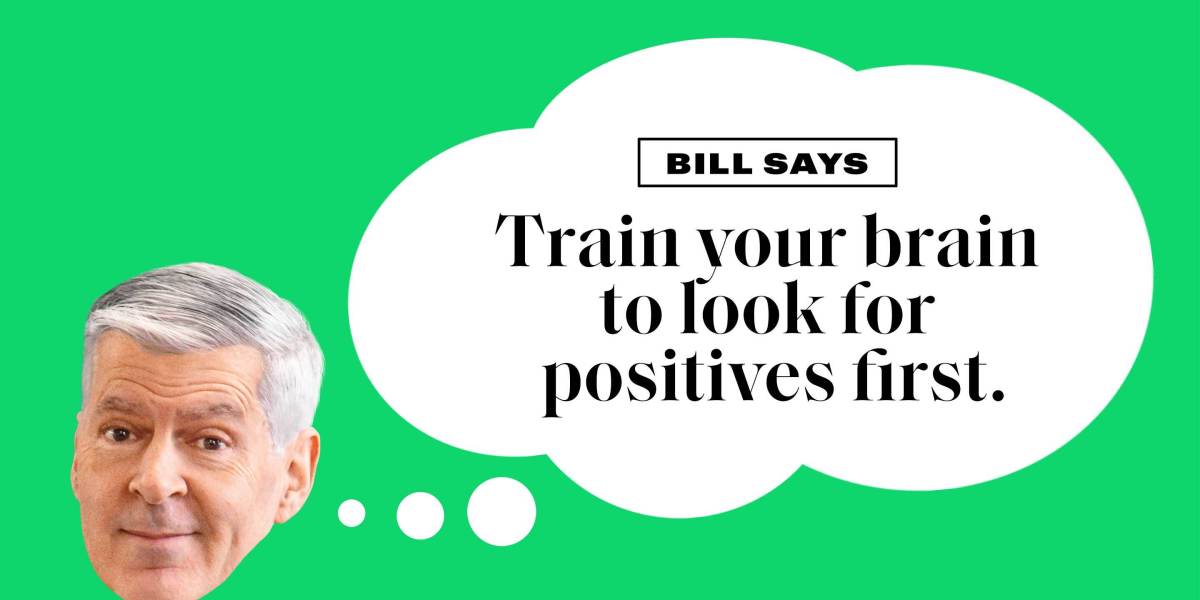- A newly released batch of messages shows top U.S. officials sharing detailed plans about a military operation against the Houthis in Yemen. The group chat also offers insight into the reasons behind the strike, resentment U.S. leaders feel toward Europe, and President Trump’s directives to “levy” costs for the attack against them.
On March 15, a top commander for the Yemen-based Houthi rebel group was confirmed dead by U.S. military forces.
National security advisor Mike Waltz then shared that information with a Signal group chat that included top members of the U.S. cabinet, the Vice President, senior White House officials, the CIA director, and, likely unbeknownst to everyone, a journalist: the editor-in-chief of The Atlantic, who would later publish the exchange, making headlines around the globe.
“The first target—their top missile guy—we had a positive ID of him walking into his girlfriend’s building and it’s now collapsed,” Waltz texted the group chat.
“Excellent,” Vice President JD Vance wrote back.
Waltz replied with a combination of emojis: fist, American flag, flame.
The released text messages came after a report published Tuesday detailed how The Atlantic’s editor-in-chief Jeffrey Goldberg was inadvertently added to the group chat in which top government officials discussed plans for a series of military strikes against the Houthis. A day later, The Atlantic published more messages from the group chat after the White House and Secretary of Defense Pete Hegseth downplayed the exchange. Both parties said the messages, sent over the Signal app, were not classified and did not feature details about the attacks against the Houthis that took place earlier this month.
When reached for comment, White Press Secretary Karoline Leavitt referred Fortune to an X post she published Wednesday morning, denying the group chat included “war plans.” The Department of Defense did not respond to a request for comment.
The newly released text messages detail officials’ reasons for attacking the Houthis—to stop their attacks on shipping lanes in the Middle East—and frustrations that doing so would benefit Europe more than the U.S. They also include a timeline of the attacks that took place on March 15 sent by Hegseth.
Hegseth sent a three hour and 21-minute plan that would run from 12:15 p.m. to 3:36 p.m. ET.
- 1215et: F-18s LAUNCH (1st strike package)
- 1345: ‘Trigger Based’ F-18 1st Strike Window Starts (Target Terrorist is @ his Known Location so SHOULD BE ON TIME – also, Strike Drones Launch (MQ-9s)
- 1410: More F-18s LAUNCH (2nd strike package)
- 1415: Strike Drones on Target (THIS IS WHEN THE FIRST BOMBS WILL DEFINITELY DROP, pending earlier ‘Trigger Based’ targets)
- 1536 F-18 2nd Strike Starts – also, first sea-based Tomahawks launched.
- MORE TO FOLLOW (per timeline)
- We are currently clean on OPSEC
- Godspeed to our Warriors
After successful confirmation of the strikes, Hegseth congratulated the U.S. Central Command (CENTCOM), which is the military’s combatant command that handles operations in the Middle East.
“CENTCOM was/is on point,” Hegseth wrote after the attacks. “Great job all. More strikes ongoing for hours tonight, and will provide full initial report tomorrow. But on time, on target and good readouts so far.”
The plans Hegseth shared match those of strikes the White House confirmed a day later on March 16. President Donald Trump confirmed the attacks against the Houthis in a social-media post that day, writing that doing so was critical to ensuring the stability of global shipping and trade.
That same rationale was shared in the group chat among many of the principal decision makers. However, the text messages also reveal the resentment certain officials felt at having to engage in military action abroad. Vance, Hegseth, and Waltz all expressed the view that Europe was relying on the U.S. to attack the Houthis because its militaries weren’t able to.
“European navies do not have the capability to defend against the types of sophisticated, antiship, cruise missiles, and drones the Houthis are now using,” Waltz texted the group before a final decision on the strikes was made. “So whether it’s now or several weeks from now, it will have to be the United States that reopens these shipping lanes.”
Waltz added the U.S. was the “only” one with the military capability to take out the Houthi armaments, to which Vance replied that he was on board with strikes if Hegseth was, albeit with some reservations. “I just hate bailing Europe out again,” Vance wrote.
Hegseth agreed with Vance’s sentiment, while acknowledging Waltz’s point that the task ultimately fell to the U.S. “VP: I fully share your loathing of European free-loading,” Hegseth wrote. “It’s PATHETIC. But Mike is correct, we are the only ones on the planet (on our side of the ledger) who can do this.”
The conversation then turned to how the group would approach receiving some form of compensation from Europe for the strikes. Officials saw Europe as owing the U.S. something in exchange for stopping the Houthis bombing of ships in the Red Sea, because they transported more goods to Europe than to the U.S.
Since Trump reentered the White House in January, tensions have increased between the U.S. and its European allies over trade, defense spending, and the ongoing war in Ukraine. Many within the Trump administration believe the U.S. does more for Europe than Europe does for the U.S. It is now shifting U.S. foreign policy toward Europe to be more confrontational and transactional, a position White House deputy chief of staff Stephen Miller espoused in the leaked chat.
“If the U.S. successfully restores freedom of navigation at great cost there needs to be some further economic gain extracted in return,” Miller wrote.
Other messages seemed to indicate that line of thinking came directly from Trump. “Per the president’s request we are working with DoD and State to determine how to compile the costs associated and levy them on the Europeans,” Waltz wrote.
This story was originally featured on Fortune.com
Source link


 Entertainment8 years ago
Entertainment8 years ago
 Politics8 years ago
Politics8 years ago
 Entertainment8 years ago
Entertainment8 years ago
 Entertainment8 years ago
Entertainment8 years ago
 Tech8 years ago
Tech8 years ago
 Tech8 years ago
Tech8 years ago
 Tech8 years ago
Tech8 years ago
 Politics8 years ago
Politics8 years ago






